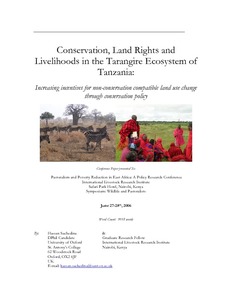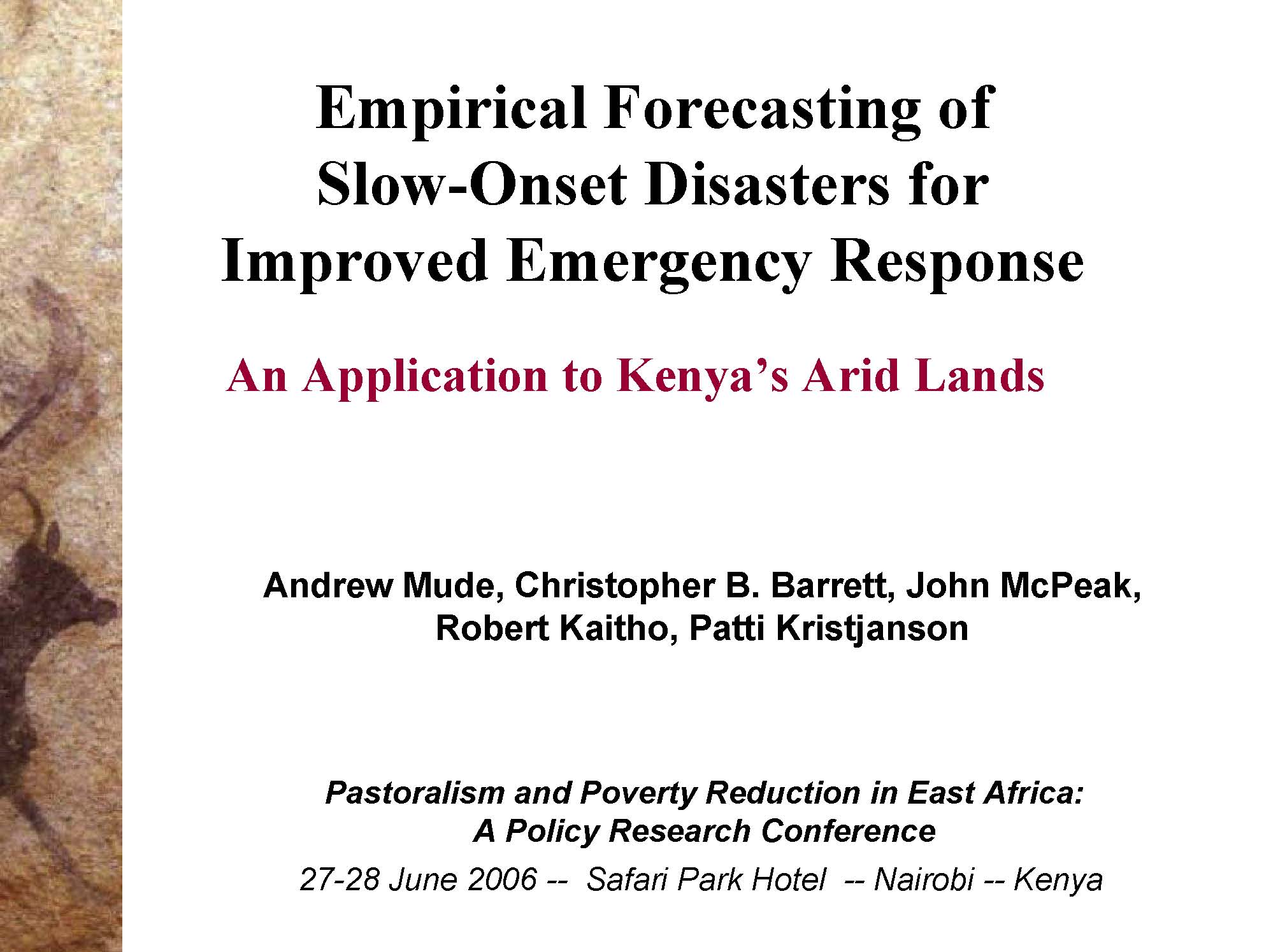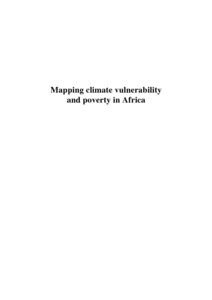Land Tenure Security for Poverty Reduction in Eastern and Southern Africa: Workshop Report
Contains review of land policy formulation and implementation, land tenure challenges and activities in poverty reduction programmes and projects, stakeholder perspectives, lessons learned for mainstreaming land tenure security in poverty reduction.
Cattle breeding strategies using genetic markers as a pathway for improving competitiveness of pastoral systems in Kenya
L'union fait-elle la force - Le droit à l'alimentation et les stratégies de lutte contre la pauvreté
Les stratégies de lutte contre la pauvreté génèrent des attentes aussi grandes que les espoirs suscités par les « Directives volontaires à l'appui de la concrétisation progressive du droit à l'alimentation ». La question est souvent posée de savoir s'il est possible d'intégrer le droit à l'alimentation dans l'instrument désormais établi que constituent les stratégies de lutte contre la pauvreté. Le présent article analyse dans quelle mesure il est possible de concilier les deux approches afin de contribuer de manière significative à la réduction de la faim.
Mapping climate vulnerability and poverty in Africa
The world’s climate is continuing to change at rates that are projected to be unprecedented in recent human history. Some models are now indicating that the temperature increases to 2100 may be larger than previously estimated in 2001. The impacts of climate change are likely to be considerable in tropical regions. Developing countries are generally considered more vulnerable to the effects of climate change than more developed countries, largely attributed to a low capacity to adapt in the developing world.
Land Update Newsletter Volume 5 Number 1
The focus is on management and use of wetlands in Kenya. Coverage includes their role in poverty reduction, Lake Naivasha, Yala, the Nzoia River Basin, and the need for securing wetlands as common property resources. Argues that secure access to wetlands for poor rural communities is fundamental to improving their livelihoods.
Rural-urban links, seasonal migration and poverty reduction in Asia. The role of circular migration in economic growth
Rural livelihoods are far more multi-locational than is often assumed with many rural people spending a part of the year outside the village working in non-farm occupations. Contrary to early theory, persistent circular or seasonal migration within countries or between neighbouring countries is emerging as the migration pattern of the poor. Nowhere is this more evident than in Asia.
A Case Study on the Implications of the Ongoing Land Reform on Sustainable Rural Development and Poverty Reduction in Rwanda and the Outcome Report of the Thematic Dialogue held on 20th January 2006, Kigali, Rwanda
Case study includes conceptual framework, rationale for land reform in Rwanda, assessment of choices, implementation. Highlights from the thematic dialogue include discussions on participation, decision making for optimal land use, land and the rural-urban interface and livelihoods, lessons learned and challenges. Third part examines possibilities for future co-operation.
Reforestation and control of landslides in Macacos Hill, a slum in Rio de Janeiro, Brazil
The focus of the project is on increasing the resistance of the physical environment to landslide activity; and building capacity of the community to decrease their vulnerability to landslides when they do occur. Project activities will include: 1. Identifying critical points of erosion and deforestation in Macacos Hill; 2. Promoting Reforestation of Macacos Hill, with the help of residents; 3.
Urban and peri-urban aquaculture development in Bangladesh and West Bengal, India
This paper follows the 2005 Dhaka workshop on "Peri-urban aquatic production and improvement of the livelihoods of the urban poor in south east Asia". It aims to raise awareness and create dialogue amongst policy-makers and development practitioners concerning the nature, extent and potential of urban and peri-urban aquaculture in Bangladesh and West Bengal, in support of the Bengal Platform established at the workshop.
Policies and strategies to address the vulnerability of pastoralists in Sub-Saharan Africa
This paper makes a case for increased policy attention to pastoralists in Sub-Saharan Africa (SSA). The paper presents:estimates of the numbers of agro-/pastoral populations globallytheir livestock and their contribution to national economiesthe incidence of poverty among agro-/pastoral populations.The author examines the causes and dynamics of poverty among pastoral populations in Africa drawing on the sustainable livelihoods framework and focusing on vulnerability to shocks.







